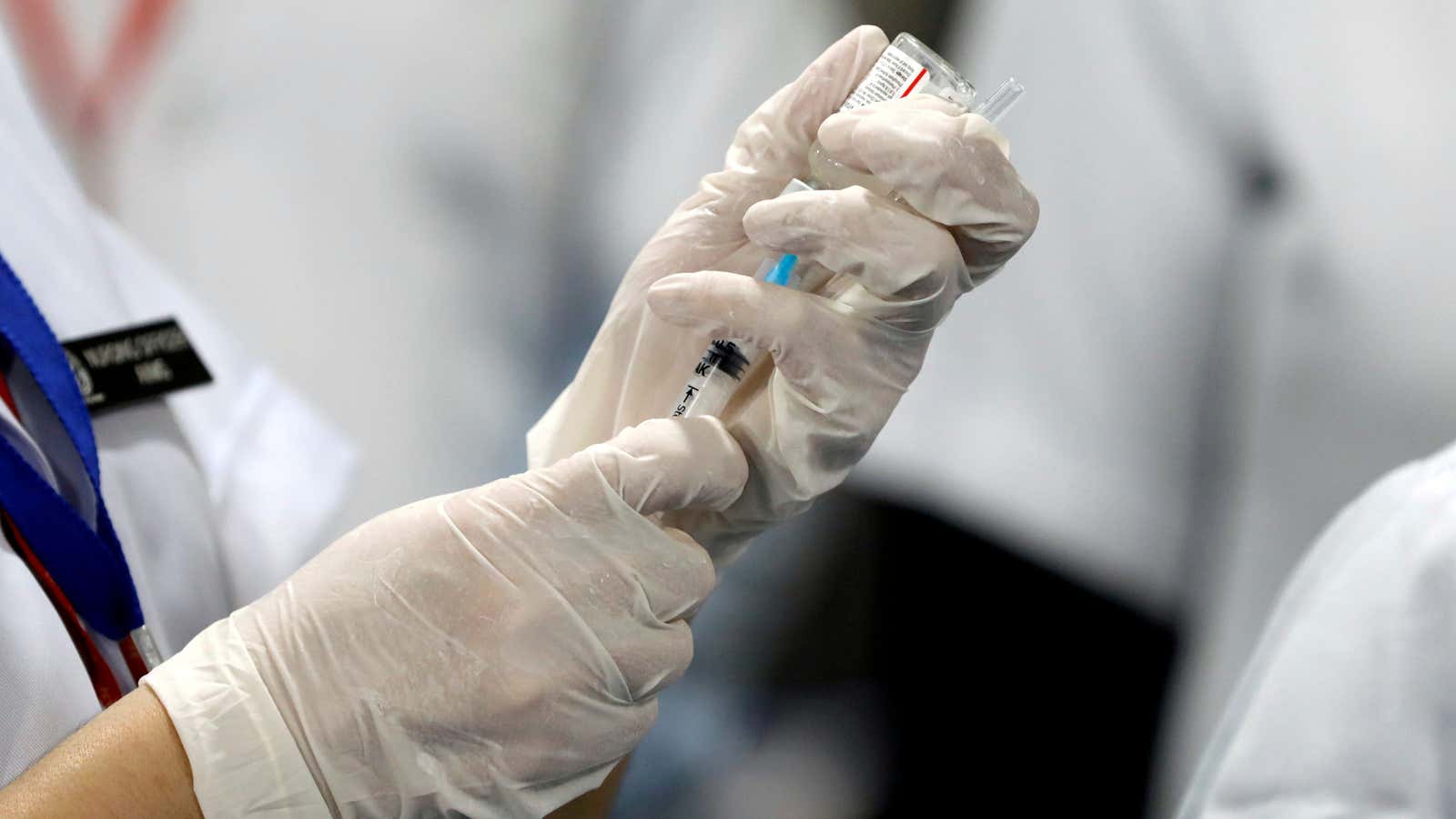A new study measuring the efficacy of India’s Covaxin could lay the path for the country to formulate a booster dose policy.
Researchers at the All India Institute of Medical Sciences (AIIMS) studied healthcare workers who were vaccinated with the Bharat Biotech-made covid vaccine and found that it was only 50% effective against the delta variant infection.
The study, published in The Lancet medical journal, analysed vaccination and infection data from over 1,000 healthcare workers between April 15 and May 15, when India was experiencing its worst covid-19 wave, fuelled by the delta variant.
These new findings suggest a reduced efficacy of Covaxin. Bharat Biotech had claimed 65% effectiveness for it against delta in its phase 3 trial. Overall, its efficacy against the symptomatic disease was about 78%, according to the trial.
This reduced efficacy is in line with data from other inactivated virus vaccines such as CoronaVac (37% efficacy).
While India has no official policy on booster doses for any of the covid-19 vaccines in use, this study could build a case for it.
The need for covid-19 vaccine boosters
The World Health Organization (WHO) in October brought out an advisory in favour of booster doses of covid-19 vaccines, urging governments to consider them. It, however, prioritised full vaccination.
In the case of inactivated virus vaccines, the WHO made a strong recommendation in favour of booster doses, either of the same vaccine or of a different brand or vaccine type.
While India may need to prioritise fully vaccinating all adults first—only 38% of those eligible have received both doses till now—it needs to consider waning immunity.
Vaccinations for healthcare and frontline workers began as far back as Jan. 16, while the elderly and immunocompromised became eligible in March. Globally, covid-19 vaccines have demonstrated waning immunity, though it is unclear to what extent or over what period of time.
India is also likely to come out with a plan for booster doses, according to source-based reports. Potentially, this could benefit healthcare workers functioning in closed settings and tending to covid-19 patients, especially in the case of a third wave.
